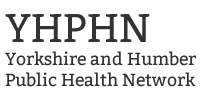
How “old” is your heart?
05 September 2018
Blog written by Chris Gibbons, Health Economics and Research Officer for Sheffield City Council.
So, we have another great digital innovation to add to the list of things we could really do without. PHE have launched a “Heart Age” app (just what we need, I hear you all cry….oh hang on, no, you are just crying……)
The premise of the app is that you can spend a few minutes to answer a short series of yes/no questions and then be told to go and get your cholesterol and blood pressure checked regardless of whether there is any evidence to suggest that this would be a good idea for you to do, or indeed a cost-effective thing for GP’s to spend time doing. Remember, GPs are already doing NHS Health Checks and they don’t look to be a great investment of time or money even where we might expect them to have the biggest impact, as this excellent bit of work points out rather well: https://journals.plos.org/plosmedicine/article?id=10.1371/journal.pmed.1002573
Why then, would PHE want to launch an App that, as several people pointed out on Twitter today, is telling people with no apparent risk factors to go and get their BP and cholesterol checked, apparently for no other reason than the algorithm in the App is instructed to do so if the person has not had this done. I used the app, and it told me that my heart was two years “older” than me (which is pretty amazing given that it was in my chest cavity when I popped out of my mother with the rest of my body 38 years ago – maybe I should talk to my GP about this particularly weird gestational gap?). It also told me that I could do with losing some weight because my BMI is in the obese category…..I’m a powerlifter so have above average muscle-mass and BMI is largely useless for me (and to be honest, given the rising popularity of lifting weights will be increasingly so in coming years)……It also told me that I should go and get a cholesterol check, and get my BP measured. In roughly two years time (unless, please God, health checks have been scrapped by then) I’ll get a letter telling me to do this anyway.
Herein lies a couple of problems with this entrant (and others) in the digital revolution (i.e a the growing bunch of apps and headlines about AI) that is currently taking us all by storm.
1) I don’t want to get my cholesterol checked, ta. It might come out as borderline and then I might be offered statins or told to eat less steak. I don’t want to take statins, and steak is delicious. And I’m 38, for goodness sake.
2) I don’t want to lose weight. I am a weight-class athlete, and I’m happy being a larger person with muscles (I spend about 8-10 hours a week strength training). This app places no value on these things that matter to me, and doesn’t factor into it’s risk algorithm the training I do. The message is apparently that physical activity has no impact on the “age” of my heart (or really my risk of CVD events). So….PHE have launched an app about CVD risk that implies (via omission of any questions about it) that physical activity is not a modifier of CVD risk. Matt Hancock took the test in an promotional video https://twitter.com/MattHancock/status/1037017514075713537 and noted that his heart was 18 months older than his age, and he should therefore exercise more. Which he’s of course welcome to do, and then get exactly the same score as the app doesn’t care how much exercise he does (unless it changes his BP or cholesterol).
3) The next time we folks in the health professions try to point the finger at pseudoscientific apps that calculate your “biological age” and try and point out that “biological age” tools are meaningless twaddle we’ll be standing on very wobbly ground, won’t we? We have a responsibility to describe the numerical information we share with the public, tell them what it means and what assumptions it is based on, to help them make better informed decisions about how much value they should place on that information. We are best placed to do this when we communicate and educate people about relative and absolute risks, what these mean for them, and encourage shared decision making about their health that references this information (as brilliantly described by Bonner et al 2018 here https://www.ncbi.nlm.nih.gov/pmc/articles/PMC5801811/). Dumbing down epidemiology to measures of “heart age” is a kind of bigotry of low expectations. Risk is complex, sure, but it isn’t beyond most people’s understanding – see David Spiegelhalter’s brilliant bacon sandwich video as an example of how concepts like this can be brilliantly taught with simple visualisations https://www.youtube.com/watch?v=4szyEbU94ig
4) Ah! But cholesterol tests are cheap I hear you cry! Yes, maybe. At an individual level, sure. But as @McCabe_IHE pointed out on Twitter these small resource impacts can accumulate to very large levels due to how many people are recommended to get a cholesterol test.
5) I’d hate to be a GP receptionist taking calls this week from all the worried well folks wanting to get a cholesterol check done having done the app. Might be quite good for maximising your QOF payments if you are a GP though…..
6) Screening is NOT harm free. Read that again. How many otherwise healthy folks will get a cholesterol check or BP measurement that leads to inappropriate prescribing?
7) As Ben Goldacre pointed out on Twitter, if everyone in their 30s took the heart age test and followed the advice to check their cholesterol, that would be 8.7 million visits to the GP for a blood test. That could cripple the system, increase waiting times for people who actually need an appointment, and cost £££.
One wonders where this will end. Maybe we’ll get a “how old is your prostate?” app next.
So, we have another great digital innovation to add to the list of things we could really do without. PHE have launched a “Heart Age” app (just what we need, I hear you all cry….oh hang on, no, you are just crying……)
The premise of the app is that you can spend a few minutes to answer a short series of yes/no questions and then be told to go and get your cholesterol and blood pressure checked regardless of whether there is any evidence to suggest that this would be a good idea for you to do, or indeed a cost-effective thing for GP’s to spend time doing. Remember, GPs are already doing NHS Health Checks and they don’t look to be a great investment of time or money even where we might expect them to have the biggest impact, as this excellent bit of work points out rather well: https://journals.plos.org/plosmedicine/article?id=10.1371/journal.pmed.1002573
Why then, would PHE want to launch an App that, as several people pointed out on Twitter today, is telling people with no apparent risk factors to go and get their BP and cholesterol checked, apparently for no other reason than the algorithm in the App is instructed to do so if the person has not had this done. I used the app, and it told me that my heart was two years “older” than me (which is pretty amazing given that it was in my chest cavity when I popped out of my mother with the rest of my body 38 years ago – maybe I should talk to my GP about this particularly weird gestational gap?). It also told me that I could do with losing some weight because my BMI is in the obese category…..I’m a powerlifter so have above average muscle-mass and BMI is largely useless for me (and to be honest, given the rising popularity of lifting weights will be increasingly so in coming years)……It also told me that I should go and get a cholesterol check, and get my BP measured. In roughly two years time (unless, please God, health checks have been scrapped by then) I’ll get a letter telling me to do this anyway.
Herein lies a couple of problems with this entrant (and others) in the digital revolution (i.e a the growing bunch of apps and headlines about AI) that is currently taking us all by storm.
1) I don’t want to get my cholesterol checked, ta. It might come out as borderline and then I might be offered statins or told to eat less steak. I don’t want to take statins, and steak is delicious. And I’m 38, for goodness sake.
2) I don’t want to lose weight. I am a weight-class athlete, and I’m happy being a larger person with muscles (I spend about 8-10 hours a week strength training). This app places no value on these things that matter to me, and doesn’t factor into it’s risk algorithm the training I do. The message is apparently that physical activity has no impact on the “age” of my heart (or really my risk of CVD events). So….PHE have launched an app about CVD risk that implies (via omission of any questions about it) that physical activity is not a modifier of CVD risk. Matt Hancock took the test in an promotional video https://twitter.com/MattHancock/status/1037017514075713537 and noted that his heart was 18 months older than his age, and he should therefore exercise more. Which he’s of course welcome to do, and then get exactly the same score as the app doesn’t care how much exercise he does (unless it changes his BP or cholesterol).
3) The next time we folks in the health professions try to point the finger at pseudoscientific apps that calculate your “biological age” and try and point out that “biological age” tools are meaningless twaddle we’ll be standing on very wobbly ground, won’t we? We have a responsibility to describe the numerical information we share with the public, tell them what it means and what assumptions it is based on, to help them make better informed decisions about how much value they should place on that information. We are best placed to do this when we communicate and educate people about relative and absolute risks, what these mean for them, and encourage shared decision making about their health that references this information (as brilliantly described by Bonner et al 2018 here https://www.ncbi.nlm.nih.gov/pmc/articles/PMC5801811/). Dumbing down epidemiology to measures of “heart age” is a kind of bigotry of low expectations. Risk is complex, sure, but it isn’t beyond most people’s understanding – see David Spiegelhalter’s brilliant bacon sandwich video as an example of how concepts like this can be brilliantly taught with simple visualisations https://www.youtube.com/watch?v=4szyEbU94ig
4) Ah! But cholesterol tests are cheap I hear you cry! Yes, maybe. At an individual level, sure. But as @McCabe_IHE pointed out on Twitter these small resource impacts can accumulate to very large levels due to how many people are recommended to get a cholesterol test.
5) I’d hate to be a GP receptionist taking calls this week from all the worried well folks wanting to get a cholesterol check done having done the app. Might be quite good for maximising your QOF payments if you are a GP though…..
6) Screening is NOT harm free. Read that again. How many otherwise healthy folks will get a cholesterol check or BP measurement that leads to inappropriate prescribing?
7) As Ben Goldacre pointed out on Twitter, if everyone in their 30s took the heart age test and followed the advice to check their cholesterol, that would be 8.7 million visits to the GP for a blood test. That could cripple the system, increase waiting times for people who actually need an appointment, and cost £££.
One wonders where this will end. Maybe we’ll get a “how old is your prostate?” app next.
